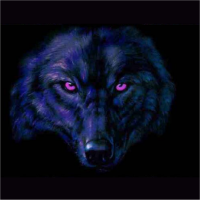skip to main |
skip to sidebar
First, read this fascinating article at Rock, Paper, Shotgun.
Done? Good. Then, at this point, you can't but be as excited as I am about a game that actually tries to make a dynamic MMO. I believe that Love, as it is called, can be a revolution in MMORPG; granted, a man working alone has significantly limited possibilities, but even with one hundredth of the current subscribers of WoW (10 millions, if you need to know), Love wouldn't fail to attract attention from deep-pocket corporations, and some of them might actually want to do more than a me-too game.
With a world that is different every time you visit it, and players who do not feel threatened by a game that tries to be more than the rest and deviates from the norm, you will see in Love nothing short than a new age of MMOs, something that will take gaming, in all its forms, leaps forward, in an era of player-driven worlds and compelling stories. Until then, mister Steenberg, we are waiting. Please don't go Duke Nukem Forever on us...
I remember UO. I was a tamer, yessir, best there was. Anyone needed a mustang, they knew they'd come to me, best tamer, best prices. Of courses, animals were next to useless in combat, but that didn't matter much. Taming was great for me, and that's all that mattered. How this matters is, of course, that I'm going to be talking about animal taming; specifically, the training part of the taming.
In UO, a tamed pet is expected to know all commands. It will understand your speech and attack, follow, move or fetch the newspaper at a word's command. A more interesting concept would have the tamer teach commands to the pet.
A pet would have a base intelligence, which indicates how many commands it can learn. If the pet age is to be a factor, then we can assume an old dog will have more command slots available. These slots are to be filled by a tamer with the appropriate skill learned, through interaction with the pet (Hey, another potential minigame there!). Assuming the taming was successful, the new command can then be used by the pet's master.
Before learning new tricks, however, the pet would need to fulfill some requirements. Besides having enough skill slots, and the intelligence to understand the command, it would need to have trained with the master before, understanding and forming a bound with them. That bound allows a pet to want to perform tricks for the master, in a mutually beneficial fashion. Pets that get transferred to new masters retain their skills, but are unable or unwilling to use them until the new master's bound is high enough.
In other words, taming a colossus of a pet is nice, but you will need to invest lots and lots of time into training it into something decent, and don't even get started on the cost of A-grade dragon meat; feeding a humongous creature is always a costly matter. On the other hand, if all you want is to give a friend a cute puppy, then you've got it easy; dogs are smart and loyal, and not only will they learn cute tricks very easily, they will also form bounds with their new master quickly. New tricks can even be taught by a new master, allowing for tamers specializing in taming or training of particular creatures.
All this can, of course, be adjusted for other forms of companionship. Golems can adapt their positronic brains to suit new tasks, or simply assimilate magical elements that explain new behaviors. Skeletons which go to combat often can actually learn the tricks, and zombies that eat enough brains might start to think better. With evolving allies, one could keep the same pets around for very long periods, without having to worry that their followers would start lagging behind their own development. Of course, you don't have to train them, if you don't want to; piles of bones and stacks of rocks will crush opponents pretty well without training, but sometimes it's the little extra length that makes all the difference. That, and seeing the puppy dance. That's a lot of brownie points right there.
